Brexit: UK could join Pacific free trade zone, says Liam Fox
- Published
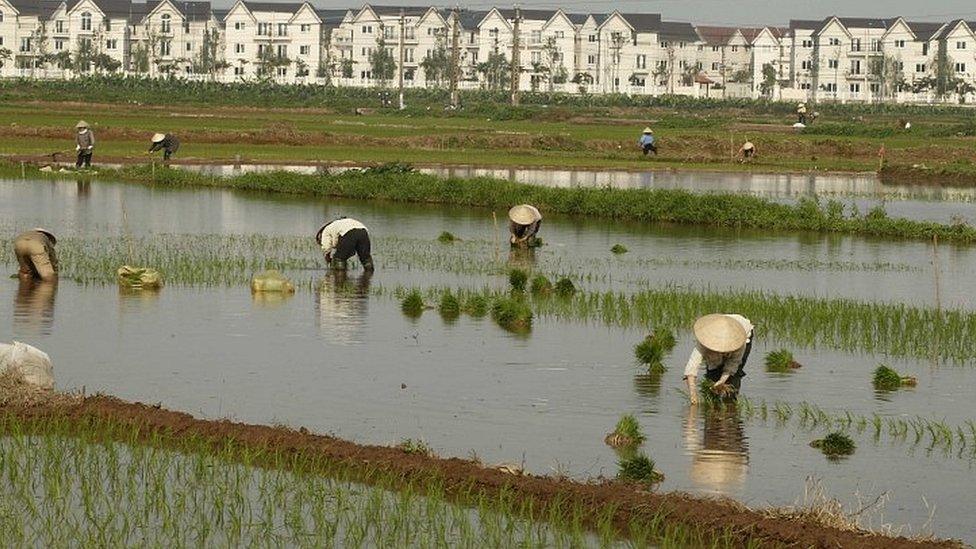
Vietnam is among the 11 signatories to the agreement
International Trade Secretary Liam Fox has not ruled out the UK joining a multi-nation Pacific free trade zone after Brexit.
Ministers have held informal talks on joining the Trans-Pacific Partnership, according to the Financial Times., external
Britain would be the first member of the trade agreement to not border the Pacific Ocean or the South China Sea.
Mr Fox said the UK wanted to see how the TPP evolved after America's exit from it before making such a move.
In the run-up to Brexit on 29 March 2019, he said his priority was to ensure that the UK continued to derive the full benefits from existing EU trade agreements - and then to work on developing bilateral trade agreements with key partners such as Australia, New Zealand and the US.
The Trans-Pacific Partnership's 11 members are Australia, Mexico, New Zealand, Canada, Chile, Japan, Singapore, Brunei, Peru, Vietnam and Malaysia.
When the agreement was first signed in 2016, it contained measures to lower both non-tariff and tariff barriers to trade and to establish mechanisms to settle disputes between investors from the countries concerned.
But it suffered a serious blow after US President Donald Trump withdrew the US from the agreement last year, reversing the policy of his predecessor Barack Obama.
The treaty is currently being renegotiated under the new title of Comprehensive and Progressive Agreement for Trans-Pacific Partnership, which will require the ratification of its remaining signatories.
Mr Fox, who is on a visit to China, suggested the press reports were "rather overblown" as it was not clear what the reconstituted TPP would "look like".
"It is not full negotiated yet so we will want to see what emerges," he said.
"But, on the other hand, we would be foolish to rule anything out. We know that Asia-Pacific will be a very important market and we know a lot of the global growth in the future will come from there."
'Growing markets'
Citing forecasts by bodies such as the IMF and OECD that 90% of global growth in trade will come from beyond Europe, he said "we have to look to see where those markets will be".
"We need to look to these big growing international markets. That's where we need to grow our trade and investment because that is what will produce our income as a country in the future."
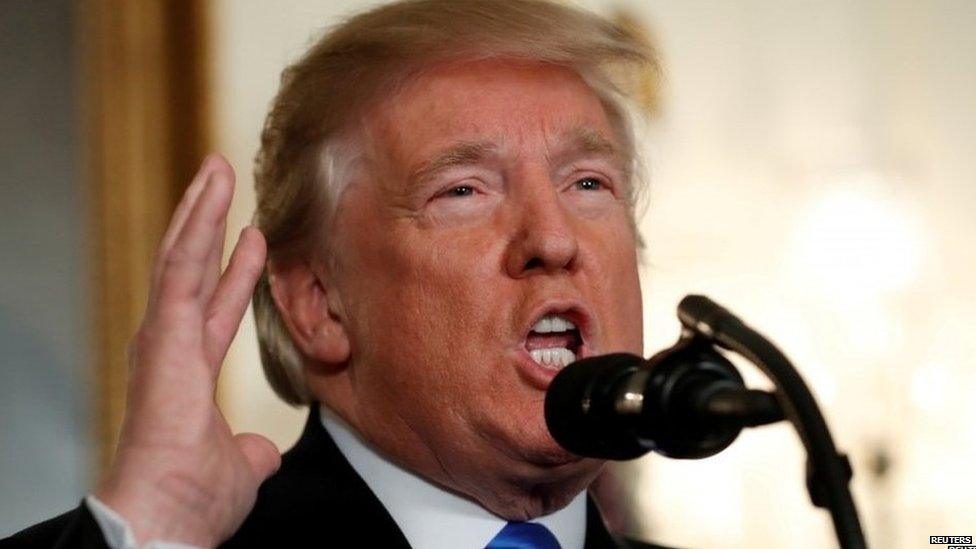
Donald Trump has said agreements like TPP are bad for US workers
The 11 TPP signatories accounted for less than 8% of UK exports last year, according to research by the Observatory of Economic Complexity at the Massachusetts Institute of Technology.
Germany, alone, makes up 11%.
Trade Minister Greg Hands told the Financial Times there was no geographical restriction on Britain joining apparently far-flung trade groups.
"Nothing is excluded in all of this," he said. "With these kind of plurilateral relationships, there doesn't have to be any geographical restriction."
But Lib Dem leader Sir Vince Cable said it would not in any way make up for what he feared would be the economic downsides of Brexit.
"Of course it is right to disown Trump's nationalistic and short-sighted approach to Pacific countries but far-flung trade deals will never compensate for leaving the world's largest market sitting on our doorstep," he said.
And the Foreign Office's former top civil servant Simon Fraser was also dismissive of the idea.
Allow X content?
This article contains content provided by X. We ask for your permission before anything is loaded, as they may be using cookies and other technologies. You may want to read X’s cookie policy, external and privacy policy, external before accepting. To view this content choose ‘accept and continue’.
In one of his first executive orders after he became president a year ago, Donald Trump authorised America's withdrawal from the TPP.
Although TPP was never ratified by the US Congress, Mr Trump blamed it and other international trade agreements like Nafta for destroying US jobs and industries by outsourcing them to low-cost competitors.
His predecessor Barack Obama had conversely argued that US membership of agreements like TPP would provide an effective counterweight to Chinese influence in the region.
'Fantasy'
Speaking during his two-day visit to China, Mr Fox said the UK and China had not "specifically discussed" a future free trade agreement after Brexit but had talked about improving bilateral trade and investment.
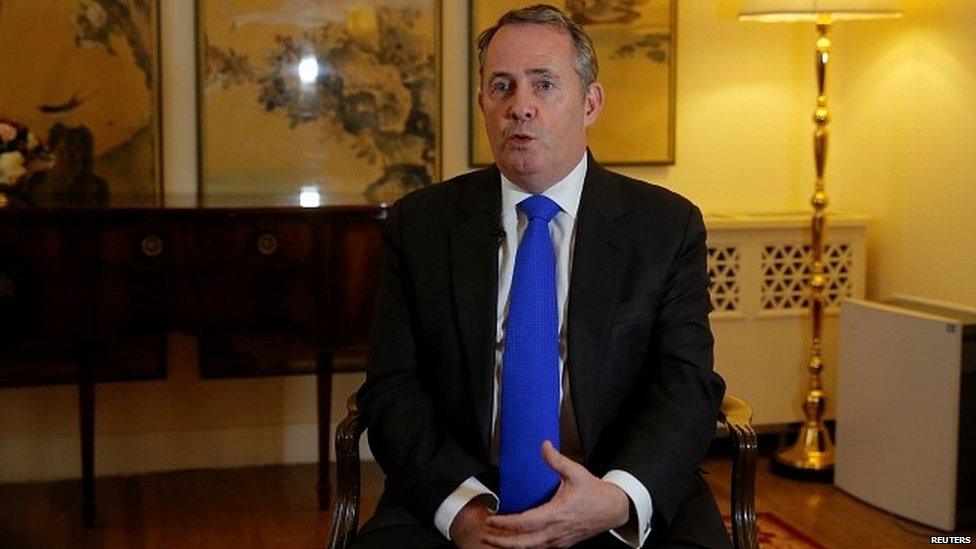
Liam Fox has urged China to do more to open its services sector
He said there were a number of areas to focus on before moving to free trade discussions, such as opening up the country's service sector.
But former Treasury minister, Lord O'Neill, accused ministers of neglecting China at the expense of "fantasy" ideas about boosting trade in the Commonwealth.
The economist, who is now a crossbench peer in the House of Lords, told German newspaper Die Welt , externalthat China had approached the UK about a free trade deal after the EU referendum in June 2016 but little had happened since then.
"When the Brexiteers speak of the Commonwealth, they mean Australia, Canada and New Zealand," he said.
"New Zealand's economy is smaller than Greece's. It's kind of fantasy. This year, China is going to grow by 6.7%.
"In nominal GDP dollar terms, China will create a new Australia this year. It will create four New Zealands."
The former Tory minister described leading Brexiteers such as Boris Johnson and Michael Gove as "smart" people who were sadly "clueless" about the world economy.
- Published3 January 2018
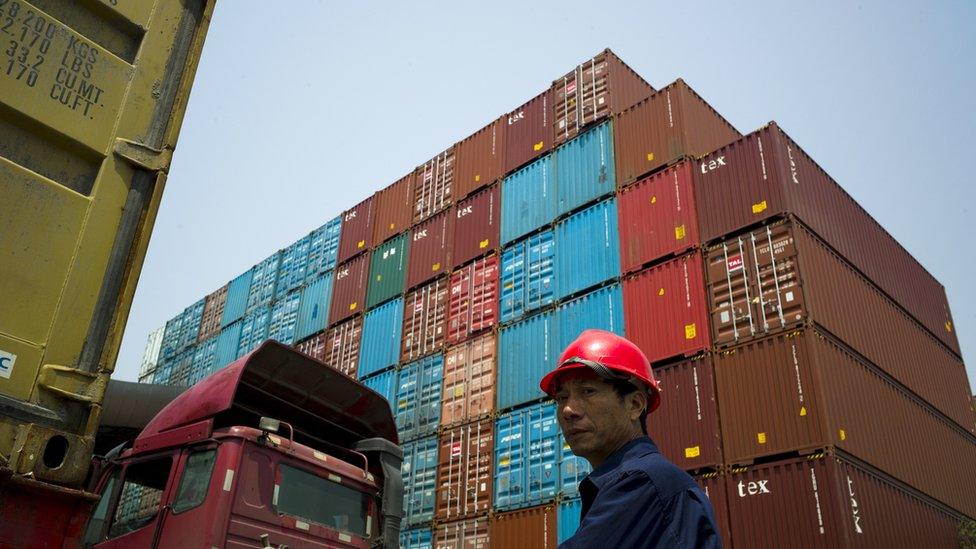
- Published2 January 2018
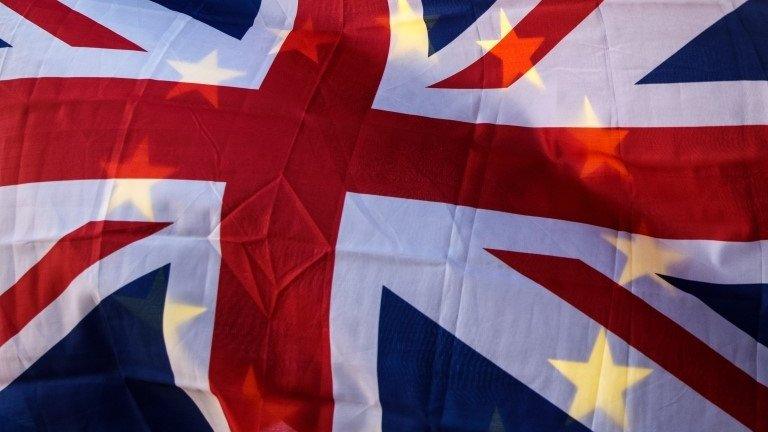
- Published9 October 2017